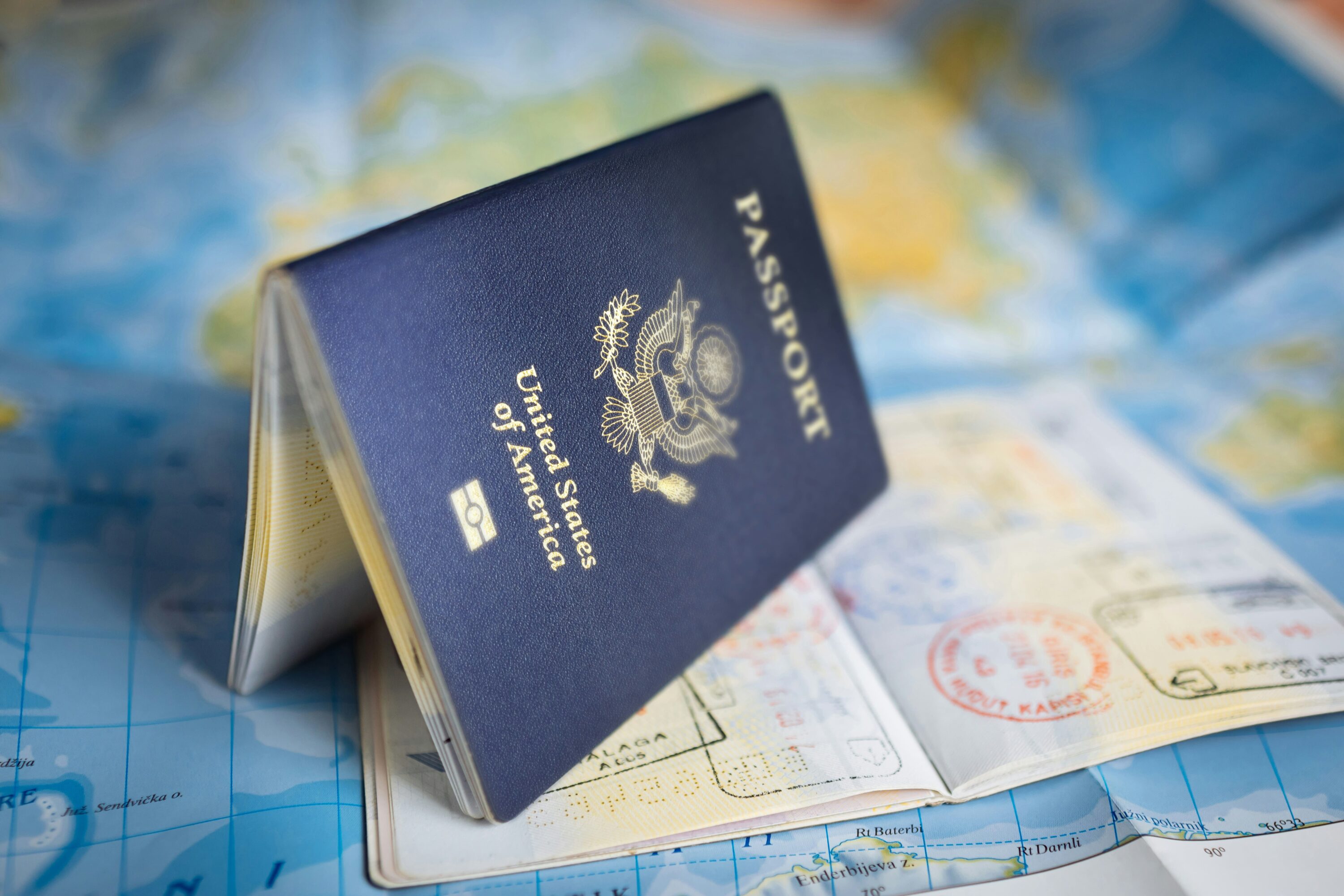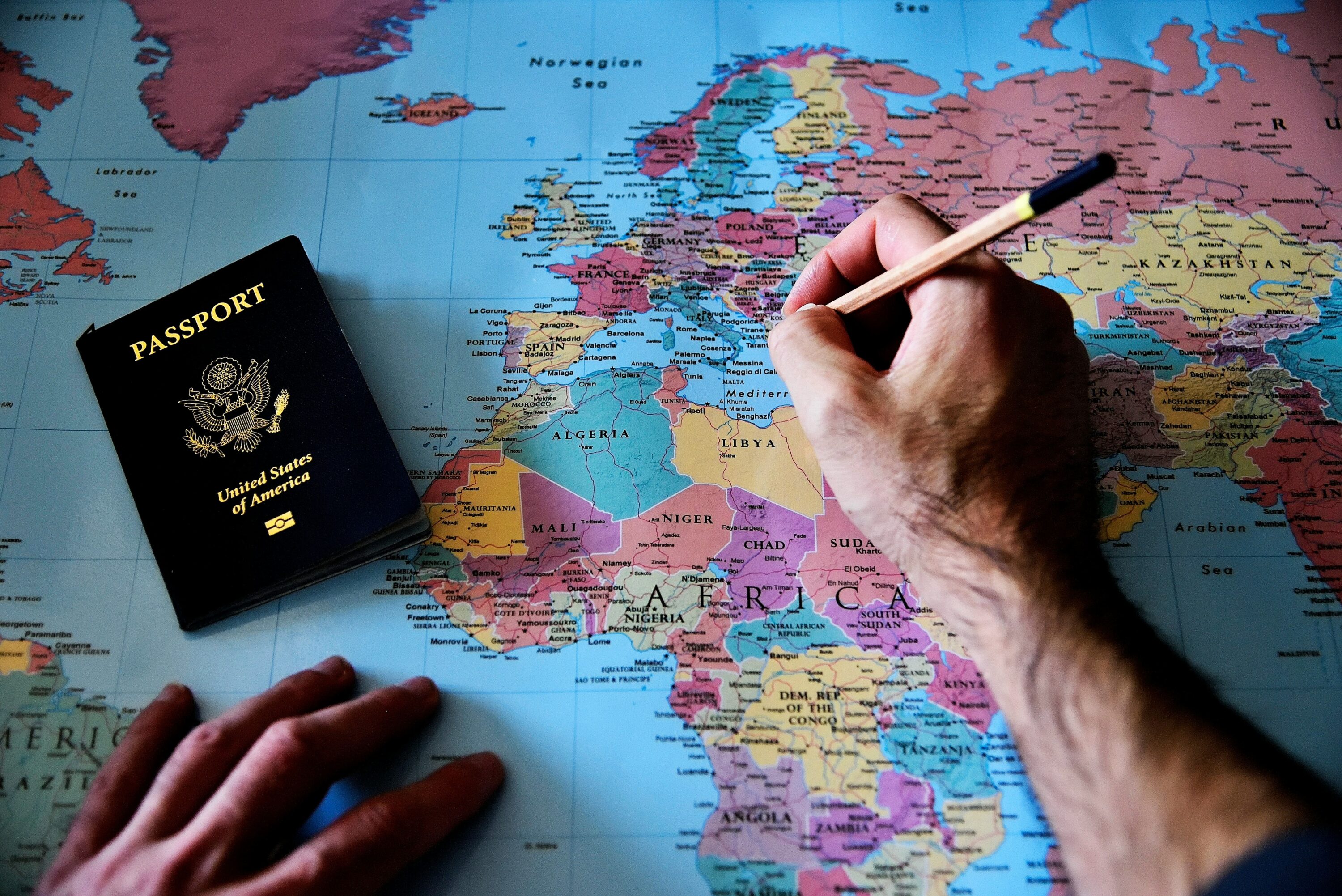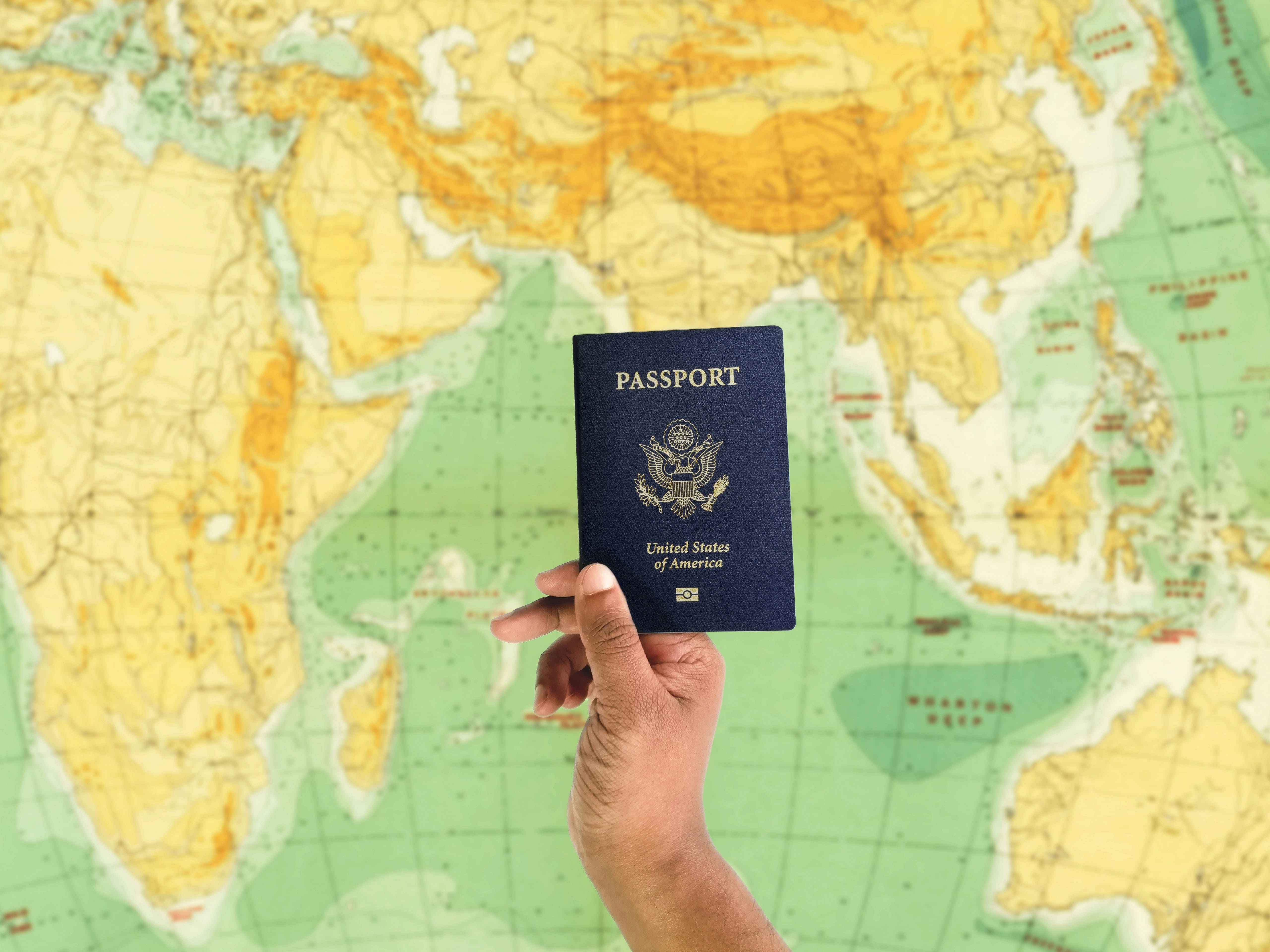Have you ever dreamed of waking up to the sound of ocean waves in Bali, sipping espresso at a Parisian café, or exploring ancient temples in Japan?
Moving abroad is an exciting opportunity to reinvent your life, experience new cultures, and gain unforgettable adventures. But before you pack your bags and book a one-way ticket, there’s a lot to consider—visas, finances, healthcare, housing, and more.
Whether you’re a digital nomad seeking remote work freedom, a retiree looking for a lower cost of living, or simply someone craving a change of scenery, this step-by-step guide will walk you through everything you need to know about moving abroad successfully. We’ll cover:
- How to choose the best country for your lifestyle and budget
- Visa options (and how to avoid common application mistakes)
- Managing finances across borders (banking, taxes, and cost of living)
- Healthcare and insurance for expats (so you’re never caught unprepared)
- Finding a home abroad (without falling for rental scams)
Moving abroad isn’t just about booking a flight—it’s a major life transition that requires careful planning. Many expats make costly mistakes by rushing the process, only to face visa rejections, financial stress, or unexpected legal hurdles. But with the right preparation, you can avoid these pitfalls and start your new life with confidence.
ExpatGlobalMedical.com offers top-rated international health insurance for expats, travelers, and global employees. Our comprehensive plans cover medical care, emergency evacuation, and travel emergencies – all with 24/7 support. Whether you’re relocating abroad or frequently traveling, they provide reliable coverage so you can explore with peace of mind.
Why Are More People Moving Abroad Than Ever Before?
Thanks to remote work opportunities, affordable travel, and globalized economies, living abroad is more accessible than ever. Countries like Portugal, Mexico, Thailand, and Spain have become hotspots for expats due to their low cost of living, welcoming visa policies, and high quality of life.
But before you join the expat wave, you need a solid plan. This guide breaks down each step-in detail, so you can move abroad smoothly, legally, and stress-free.
Step 1: Choose the Right Country When Moving Abroad
Choosing the right country is the most important decision you’ll make as a future expat. The ideal destination depends on your budget, career, lifestyle preferences, and long-term goals. Some countries offer affordable living but limited job opportunities, while others have high costs but excellent healthcare and infrastructure.
To help you decide, we’ve analyzed the top expat destinations worldwide, comparing their pros, cons, and key factors like cost of living, visa options, and quality of life.
Best Countries for Expats
Finding the right destination depends on your priorities – whether it’s career growth, affordable living, quality healthcare, or an enriching cultural experience. The best locations offer a mix of welcoming visa policies, strong expat communities, and a high quality of life. Some destinations stand out for digital nomads with their remote work visas, while others attract retirees with excellent healthcare and low costs.
Families often prioritize safety and education systems, whereas adventure-seekers might prefer vibrant cultural scenes. The ideal expat country balances practical needs with the lifestyle you dream of, so consider your budget, language preferences, and long-term goals when choosing. Thorough research ensures you pick a place where you’ll thrive, not just survive.
1. Best for Digital Nomads & Remote Workers
Top Picks: Portugal, Thailand, Mexico, Spain, Estonia
Pros:
- Affordable cost of living (Thailand, Mexico)
- Digital nomad visas (Portugal, Estonia, Spain)
- Strong expat communities (Bali, Lisbon, Barcelona)
- Fast internet & coworking spaces
Cons:
- Some countries have tax complications (e.g., Portugal’s NHR regime is changing)
- Time zone differences can affect remote work
2. Best for Retirees & Low-Cost Living
Top Picks: Mexico, Portugal, Costa Rica, Malaysia, Panama
Pros:
- Affordable healthcare (Mexico, Malaysia)
- Retirement visas (Panama’s Pensionado Visa, Portugal’s D7 Visa)
- Warm climate & relaxed lifestyle
Cons:
- Lower-quality infrastructure in some areas
- Limited public healthcare for non-residents
3. Best for High Salaries & Career Growth
Top Picks: Germany, Canada, UAE (Dubai), Singapore, Switzerland
Pros:
- Strong job markets (Germany for engineers, UAE for finance)
- High-quality healthcare & education
- Stable economies
Cons:
- Expensive housing (Zurich, Singapore, Dubai)
- Strict immigration rules (Canada’s Express Entry, Germany’s Blue Card)
4. Best for Families & Safety
Top Picks: Canada, Australia, New Zealand, Denmark, Japan
Pros:
- Top-ranked education & healthcare
- Low crime rates
- Family-friendly policies (parental leave, childcare support)
Cons:
- High taxes (Scandinavia, Canada)
- Difficult visa processes (Japan’s work visa rules)
How to Decide: 5-Step Checklist
- Define Your Priorities: Before relocating, assess your budget for housing, healthcare, and daily costs, research job opportunities—whether remote work or local employment—and consider your ideal lifestyle, whether that’s coastal living, urban energy, or rural tranquility to ensure your new country aligns with both your finances and personal preferences.
- Compare Visa Options: Countries worldwide offer specialized visa options to accommodate different expat needs, including work visas like Germany’s Blue Card or Canada’s Express Entry for skilled professionals, retirement visas such as Portugal’s D7 or Panama’s Pensionado for those with passive income, and digital nomad visas in Spain, Estonia, and Costa Rica tailored for remote workers seeking location independence.
- Research Cost of Living: Smart expats use cost-of-living tools like Numbeo and Expatistan to compare essentials—rent, groceries, and taxes—before choosing a destination. For instance, while Portugal offers significantly lower living costs than Switzerland, salaries there tend to be proportionally smaller, highlighting the importance of balancing expenses with earning potential when planning your move.
- Check Healthcare Quality: Understanding healthcare options is crucial for expats—while countries like Spain offer excellent public healthcare systems, others like the UAE mandate private insurance. It’s equally important to verify coverage for pre-existing conditions, as many plans either exclude them entirely or impose waiting periods before covering them.
- Visit Before Moving (If Possible): Before committing long-term, book a short-term rental (1-3 months) to experience daily life in your potential new country—this trial period helps you assess neighborhoods, costs, and overall comfort. Meanwhile, connect with expats in local Facebook groups or Reddit communities to get unfiltered advice about schools, healthcare, and hidden challenges from those already living there.
Step 2: Visas and Paperwork
Moving abroad legally requires navigating complex visa requirements and paperwork. Many eager expats make costly mistakes that delay their plans or even get them denied entry. This section breaks down all visa options, essential documents, and common pitfalls to avoid when handling your international move paperwork.
Types of Visas for Future Expats
1. Work Visas
Popular Destinations: Germany, Canada, UAE, Australia, Singapore
Typical Requirements:
- Job offer from local employer
- Proof of qualifications/degree recognition
- Labor market test (some countries)
- Clean criminal record
- Processing Time: 1-6 months
2. Digital Nomad Visas (Remote Work)
Top Options: Portugal, Spain, Estonia, Costa Rica, Thailand
Key Features:
- Valid 6 months to 2 years
- Minimum income requirements ($2,000-$4,000/month)
- Often require proof of remote employment
3. Retirement Visas (Passive Income)
Best Countries: Portugal, Mexico, Panama, Malaysia, Thailand
Financial Requirements:
- Proof of pension/savings ($1,500-$3,000/month)
- Sometimes property purchase/investment
Hidden Challenges:
- Healthcare access restrictions
- Income source verification
- Annual renewal requirements
4. Student Visas (Education Pathway)
Top Destinations: USA, UK, Canada, Germany, Australia
Critical Documents:
- University acceptance letter
- Proof of sufficient funds
- Health insurance
Common Oversights:
- Work hour limitations
- Post-graduation visa options
- Bringing dependents
5. Investor Visas (Business/Real Estate)
Popular Choices: Portugal (Golden Visa), Spain, Greece, UAE
Investment Options:
- Real estate ($300000-$600000)
- Business investment ($100,000+)
- Government bonds
Risks to Avoid:
- Changing program rules
- Tax implications
- Residency requirements
Essential Paperwork Checklist
Core Documents You’ll Need:
- Passport (valid for 6+ months beyond stay)
- Birth Certificate (legalized)
- Police Clearance (from all countries lived in)
- Medical Records (vaccinations)
- Financial Proof (bank statements, tax returns)
- Accommodation Proof (rental contract or property deed)
- Marriage/Divorce Certificates
Specialized Documents:
- Degree Diplomas (with professional translation)
- Professional Licenses (for regulated jobs)
- Criminal Background Check (FBI check for Americans)
Pro Tips for Smoother Paperwork
- Create a Master Binder with all original documents and copies
- Scan Everything and store in cloud
- Track Deadlines in calendar with reminders for renewals
- Build Relationships with local immigration lawyers
Warning: Visa rules change frequently! Always check official government websites (not third-party blogs) for current requirements.
Step 3: Managing Your Finances Abroad: A Smart Expat’s Guide
Moving abroad isn’t just about visas—it’s about smart money management. Here’s how to stay financially secure in your new country.
Budget Before You Go
- Compare costs for:
- Housing (city vs. rural)
- Food (local markets vs. imported goods)
- Transport (public vs. owning a car)
- Healthcare (insurance & out-of-pocket costs)
- Taxes (local rates & U.S. filing requirements)
Pro Tip: Live on 70% of your budget for the first 3 months as you adjust.
Smart Banking for Expats
- Keep a U.S. account (use no-fee cards like Charles Schwab)
- Open a local account (for rent, bills, salary)
- Use Wise or Revolut for low-cost international transfers
Taxes Made Simple
- S. citizens must file yearly, even abroad (Foreign Earned Income Exclusion available).
- Check local taxes—income, capital gains, inheritance.
- Hire an expat tax pro your first year.
Emergency Prep
- Save 6 months’ expenses (split between U.S. & local accounts).
- Get international health insurance and emergency evacuation coverage.
Avoid These Mistakes
- Not telling your U.S. bank (risk frozen accounts)
- Using high-fee credit cards (3% foreign transaction fees add up)
- Ignoring taxes (double-check U.S. & local rules)
- Keeping all money in one currency (exchange rates matter)
Step 4: Health Insurance for Expats
Moving abroad means leaving behind your U.S. health coverage—Medicare and most private plans do not work overseas. Without proper insurance, a medical emergency could lead to massive bills or denied care. Here’s how to stay protected.
Why Your Current Insurance Won’t Work Abroad
U.S. Health Insurance Limits
- Most plans cover $0 for overseas care (except rare emergencies).
- Medicare & Medicaid provide NO coverage outside the U.S.
- Employer “global” plans often have strict limits or exclusions.
Local Health Insurance Risks
- May exclude pre-existing conditions or impose waiting periods.
- Low coverage caps (some as little as $10,000).
- Rarely include medical evacuation (a $100,000+ risk).
Top Providers:
- Expat Global Medical (Highest Quality Coverage)
- Cigna Global
- GeoBlue Xplorer
Cost: $150-$500/month (depends on age & coverage)
Read More: Life Insurance for Expats Without Medical Examination
Must-Have Coverage Features
- Medical Evacuation ($250,000+ minimum) – For emergency transfers.
- Pre-Existing Condition Coverage – Many plans exclude them.
- Direct Billing – Avoid paying $50,000+ upfront.
- Mental Health Coverage – Crucial for expat adjustment.
- Repatriation – Returns remains to your home country if needed.
Mistakes Expats Make
- Assuming Free Healthcare Applies to Them (Many countries charge foreigners).
- Not Disclosing Pre-Existing Conditions (Leads to claim denials).
- Letting Coverage Lapse (Even one day uninsured is dangerous).
Need Expert Help?
Expat Global Medical offers comprehensive international health insurance, including:
- Expat Medical Insurance
- Travel Medical Insurance
- Overseas Life Insurance
- Air Evacuation (U.S. Citizens Only)
- Global Employee Medical Plans
Step 5: Packing Smart for Your Move Abroad
Now that you’ve secured health insurance, it’s time to tackle the next big challenge: downsizing. Moving overseas means embracing minimalism—shipping costs add up quickly ($1,000+ per cubic meter), and many appliances won’t work due to voltage differences. Plus, smaller living spaces abroad mean less storage.
What to Pack: Focus on essentials—important documents (passports, visas), a 2-week capsule wardrobe, universal adapters (not converters!), necessary medications, and a few irreplaceable sentimental items. Leave behind bulky appliances, excess furniture, heavy winter gear (unless needed), and books (opt for an e-reader instead).
Selling & Donating: Start early—sell high-value items first (electronics, designer clothes) via Facebook Marketplace, Poshmark, or eBay. Host a garage sale for mid-value goods, then donate the rest.
Packing Strategy: Use the 2-bag system—keep essentials (documents, meds, a change of clothes) in your carry-on, and pack the rest in checked luggage (vacuum-sealed clothes, limited sentimental items). Weigh bags beforehand to avoid airline fees.
Shipping vs. Storing: Only ship if moving permanently or bringing specialized gear. For short-term moves or heirlooms, consider storage (split a unit to save costs).
Avoid These Mistakes:
- Bringing “just in case” items (you won’t need them).
- Overpacking sentimental belongings (limit to one small box).
- Forgetting to research customs rules (some countries tax shipped goods).
Final Checklist:
- Sell/donate 80% of belongings
- Digitize important documents
- Notify banks of your move
- Cancel unused subscriptions
- Set up mail forwarding
- Pack a first night box with essentials
Last Step: Finding a Safe Home Abroad (And Avoiding Scams)
Renting in a new country can be risky—scammers often target expats with fake listings and pressure tactics. Watch for red flags like prices far below market rates, landlords who avoid video calls, or demands for cash deposits. Always verify listings through short-term stays (Airbnb, guesthouses) first, then work with licensed real estate agents or trusted expat housing groups.
Before signing a lease, clarify key details: Are utilities included? What’s the deposit amount? Are there hidden fees? If the contract isn’t in English, get a professional translation. Never rent sight unseen—visit in person or use a relocation service to verify the property. Stick to secure payment methods (bank transfers with contracts) to avoid scams.
Pro tip: Local expat forums and classified sites (like Idealista in Spain or Rightmove in the UK) often have the most reliable listings. Take your time—rushing into a lease can lead to expensive mistakes.
Final Words
Moving abroad is an exciting journey filled with new experiences, but your safety and financial security should never be left to chance. As you embark on this life-changing chapter, remember that proper preparation—from finding the right home to managing your finances—makes all the difference.
One essential step you can’t overlook? Reliable international health coverage. Medical emergencies abroad can be financially devastating without the right protection. That’s where Expat Global Medical comes in—we specialize in safeguarding expats and global nomads with comprehensive, hassle-free insurance solutions







